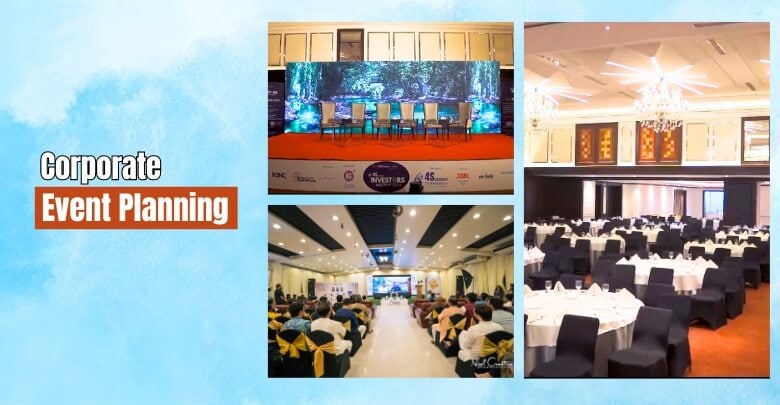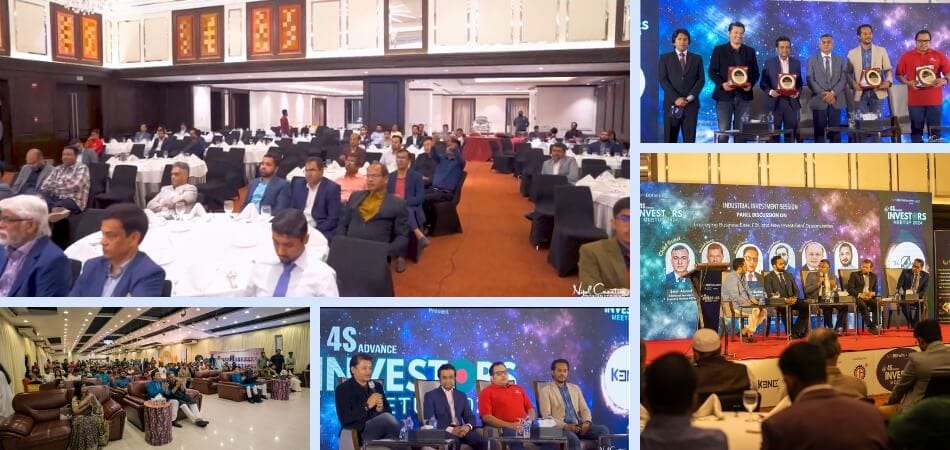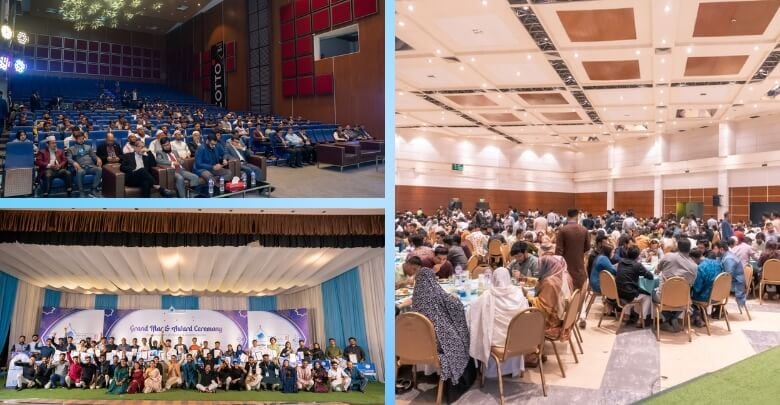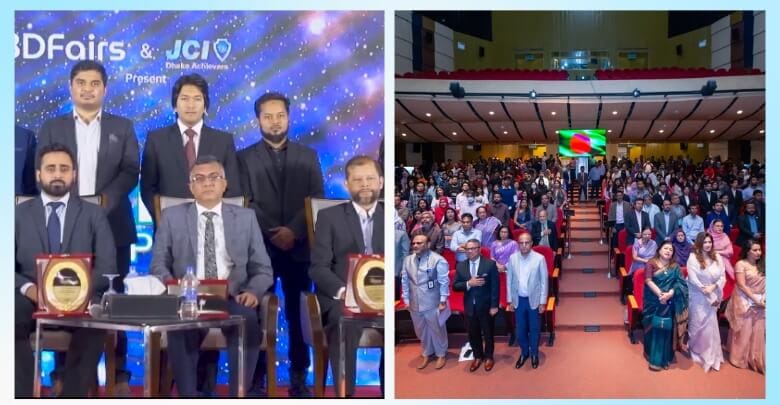As the corporate sector continues to increase, there is a growing demand for professional event management services. These services not only capture the essence of corporate events but also preserve cherished memories and milestones. This increase in demand highlights the importance of understanding what should be included in a corporate event to ensure its success.
A corporate event should include purpose and goal definition, budget planning, and venue selection for the desired atmosphere. Engaging content and innovative engagement strategies ensure a memorable experience for attendees.
We will explore these key aspects in more detail, offering insights and tips to make your next corporate event more successful. Stay tuned as we discuss how to create an impactful and memorable event.
Pre Event Planning: Why is It Necessary?
Pre-event planning is a critical step that often determines the success of any corporate event. It’s like setting the stage before a grand performance, ensuring that every detail is aligned with the event’s goals and objectives.

The assistance of the best corporate event planner can make a significant difference, especially where corporate events are on the rise. These companies bring expertise and resources that help prepare for potential issues and manage logistics efficiently. This proactive approach saves time and money but also allows a more creative and strategic use of resources.
By planning ahead, companies can secure the best venues, caterers, and entertainment, and personalize the event to the specific needs of the audience. Effective pre-event planning also builds anticipation and engagement.
This ensures attendees are well-informed and excited long before the event begins. This foundational step is not just necessary; it’s the key to a successful corporate event.
What Should Be Included in a Corporate Event?
When organizing a corporate event, you should get the fundamentals right to ensure it’s both memorable and effective. Here, what should be included is described briefly.

Event’s Purpose and Goals
Every successful corporate event starts with a clear understanding of its purpose. Are you aiming to promote team spirit, launch a new product, or perhaps communicate key business strategies?
Establishing this early on guides every decision, from the theme to the choice of speakers. Additionally, setting measurable goals allows you to assess the event’s success afterward, ensuring it delivers real value to both the attendees and the company.
Budget Planning
Allocating the right resources to your event is essential. A well-planned budget ensures that you can cover all necessary expenses without compromising on quality. Start by listing all potential costs from venue hire and catering to entertainment and technology support.
This preparation prevents unexpected expenses from cropping up and helps prioritize spending on elements that maximize attendee satisfaction and return on investment.
Venue Selection
Choosing the right venue is more than just finding a space large enough to accommodate your guests. It’s about finding a location that aligns with your event’s theme and objectives.
Consider accessibility for attendees, available amenities, and the technical capabilities of the space. The right venue sets the tone for the event and can make a significant difference in its overall impact.
Event’s Atmosphere
The atmosphere of your event can be greatly influenced by your choice of venue. A venue that complements the event’s theme can enhance the attendees’ experience and engagement.
For example, a sleek, high-tech room is ideal for a product launch, while a cozy, elegant hall might be perfect for an annual party. The environment should align with your event’s tone and objectives to create a memorable and immersive experience.
Attendee Experience
Beyond the design, the functionality of a venue affects how attendees interact with your event. Good sound quality, comfortable seating, and optimal lighting are crucial for keeping attendees engaged.
Additionally, consider the flow of traffic through the venue to ensure that attendees can move smoothly from one section to another. This is essential for networking and interactive sessions.
Audience Engagement and Content
Engaging your audience is the most important thing. This can be achieved through compelling content that resonates with them. Whether it’s inspiring speeches, interactive workshops, or engaging multimedia presentations, the content should be relevant.
It should also be designed to meet the interests and needs of your audience. Remember, an engaged attendee is one who will take away positive memories and valuable insights from your event.
Engage Attendees
Traditional presentations aren’t enough to hold an audience’s attention. Consider incorporating interactive elements like live polls, Q&A sessions with speakers via apps, or virtual reality experiences. These innovative engagement strategies not only make your event more interactive but also more memorable.
Planning a successful corporate event requires meticulous attention to detail and strategic coordination. In that case, choosing the right corporate event management company is key in bringing all these elements together seamlessly.
Their expertise in logistics, vendor management, and creative direction can transform your vision into reality. This ensures your event is not only planned efficiently, but also resonates well with the attendees.
How to Define the Agendas of a Corporate Event?
The purpose of defining the agenda for a corporate event is like creating a roadmap that guides participants towards a clear destination. This process ensures that the event meets its expected goals but also provides a structured experience for attendees.

Whether it’s a workshop, a conference, or an annual meeting, a well-crafted agenda sets the tone for efficiency and engagement. Here are some simple steps you can follow.
Step 1: Establish Objectives
The most important thing to do is clearly define what you aim to achieve with your event. Consider what success looks like for your organization and what outcomes you expect from attendees. This clarity helps in creating sessions that are both purposeful and strategic, directing your event towards meaningful outcomes.
Step 2: Consult with Stakeholders
Gathering input from various stakeholders is extremely important. This includes sponsors, speakers, and attendees. Their insights will help come up with an agenda that addresses the interests and expectations of all parties involved. This collaborative approach ensures that the agenda is comprehensive and aligned with the goals of your event.
Step 3: Schedule Sessions
Organizing the sessions involves deciding on their timing, duration, and the speakers who will lead them. You should balance the schedule to prevent attendee fatigue. Ensure there is ample time for breaks, networking, and informal interactions, which are as valuable as the formal sessions.
Step 4: Leverage Expertise
A partnership with a corporate event management service can be a great way to determine the agenda for events in the city. These firms bring their expertise and local knowledge, which can be instrumental in creating an agenda that resonates with your audience and utilizes the best local resources and speakers.
Properly defining the agendas for a corporate event ensures that every minute spent is valuable and every session drives the event closer to its goals. This structured approach not only enhances the experience but also maximizes the return on investment for both organizers and attendees.
Tips and Tricks for Post Event Evaluation and Follow-ups
Post-event evaluation and follow-ups are critical components of the event management process. They provide insights into what worked, what didn’t, and how to improve future events.

By carefully analyzing feedback and maintaining communication with participants, organizers can enhance the effectiveness of their events and strengthen relationships with attendees.
Here are some tips and tricks for efficient post-event evaluation and follow-ups.
- Distribute Surveys Promptly: Send out feedback forms immediately after the event to capture fresh impressions.
- Include Open-Ended Questions: Allow attendees to provide detailed feedback and suggestions in their own words.
- Analyze Data Thoroughly: Look for trends and common points in the feedback to identify areas for improvement.
- Set Follow-Up Deadlines: Ensure timely responses to feedback and questions from attendees.
- Use Multiple Channels: Reach out via email, social media, and phone to maximize response rates.
- Thank Your Attendees: Show appreciation for their participation and feedback, enhancing future engagement.
- Share Key Learnings: Inform stakeholders about the successes and lessons learned from the event.
- Plan for Next Steps: Use the insights gained to plan better events in the future.
By taking advantage of these tips, event organizers can effectively measure their success and facilitate continuous improvement. This will ensure that each event is more successful than the last.
FAQs About What Should Be Included in a Corporate Event?
When planning a corporate event, knowing the key components and stages can greatly enhance its success and impact. Here’s a guide to understanding these essentials.
What Are the 5 Components of An Event?
The five main components of an event are concept, coordination, control, culmination, and closeout. Each stage plays a crucial role from inception through completion and wrapping up the event effectively.
What Are the Six Major Components of An Event?
The six major components include event planning, event management, event logistics, event marketing, event production, and event execution. These elements ensure a detailed approach to creating and delivering a successful event.
How Can Technology Enhance a Corporate Event?
Technology can streamline registration, enhance engagement through interactive apps, and facilitate seamless communication and scheduling, significantly enhancing attendee experience.
What Role Does Networking Play in Corporate Events?
Networking is vital as it provides attendees the opportunity to connect with peers, share ideas, and potentially improve professional relationships and collaborations.
How Important Is Feedback in Corporate Event Planning?
Feedback is crucial for understanding attendee experiences, measuring satisfaction, and identifying areas for improvement in future events.
Conclusion
Our discussion is now complete, we’ve explored deep into the essentials of corporate event planning. From the beginning, we recognized that understanding “What should be included in a corporate event?” is fundamental to its success.
Key elements include defining clear objectives, meticulous budgeting, choosing the right venue, engaging content, and innovative attendee engagement strategies. For those who organize such events, it’s wise to integrate technology and seek feedback to refine future endeavors.
Each of these components ensures that every corporate event meets but exceeds expectations, creating memorable and impactful experiences for all participants.
